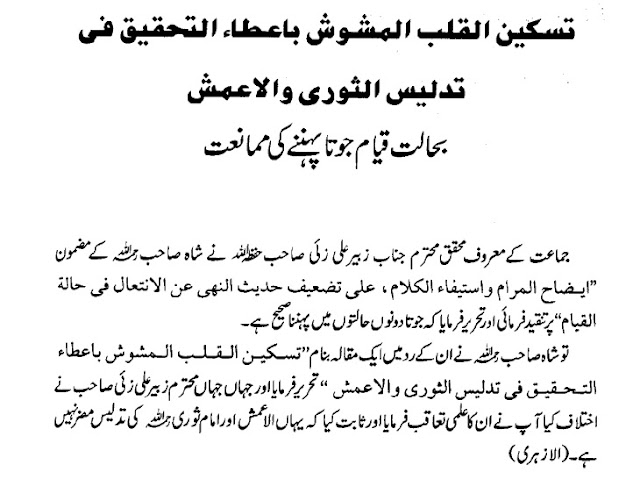الفرع الثاني: في جواز الجرح ووقوعه (2)
قد عاب بعضُ من لا يفهم على أهل الحديث الكلام في الرجال، لأنهم
لم يقفوا على الغرض من ذلك، ولا أدركوا المقصد فيه، وإنما حمل أصحاب الحديث على الكلام في الرجال، وتعديل من عدَّلوا، وجرح من جرحوا، الاحتياط في أمور الدين، وحراسة قانونه، وتمييز مواقع الغلط والخطأ في هذا الأصل الأعظم الذي عليه مبنى الإسلام وأساس الشريعة.
ولا يُظَنّ بهم أنهم أرادوا الطعن في الناس والغيبة والوقيعة فيهم، ولكنهم بيَّنوا ضعف من ضعفوه، لكي يُعرف فتُجتنب الرواية عنه والأخذ بحديثه، تورعًا وحِسبة وتثبتًا في أمر الدين، فإن الشهادة في الدين أحق وأولى أن يُتَثَبَّتَ فيها من الشهادة في الحقوق والأموال، فلهذا افترضوا على أنفسهم الكلام في ذلك وتبيين أحوال الناس، وهو من الأمور المتعينة العائدة بالنفع العظيم في أصول الدين.
قال ابن سيرين: كانوا في الزمن الأول لا يسألون عن الإسناد، فلما وقعت الفتن سألوا عن الإسناد، ليأخذوا حديث أهل السنة، ويدعوا حديث أهل البدع، فإن
القوم كانوا أصحاب حفظ وإتقان، ورُبَّ رجل وإن كان صالحًا، لا يقيم الشهادة ولا يحفظها.
وكل من كان متهمًا بالكذب في الحديث، أو كان مغفلاً يُخطئ كثيرًا، فالذي اختاره أهل العلم من الأئمة: أن لا (1) يُشتغل بالرواية عنه.
وقد تكلم جماعة من أهل الحديث في جماعة من أكابر العلماء، وضعفوهم
من قبل حفظهم، ووثقهم آخرون لجلالتهم وصدقهم، وإن كانوا قد وَهِمُوا في بعض ما رووا، ألا ترى أن الحسن البصري وطاوسًا قد تكلما في معبد الجُهَنِّي (1) وتكلم سعيد بن جبير في طَلْق بن حبيب (2) . وتكلم إبراهيم النخعي وعامر الشعبي في الحارث الأعور (3) .
وكذلك أيوب السختياني، وعبد الله بن عون، وسليمان التيمي، وشعبة بن الحجاج، وسفيان الثوري، ومالك بن أنس، والأوزاعي، وعبد الرحمن بن مهدي، ويحيى بن سعيد القطان، ووكيع بن الجراح، وعبد الله بن المبارك، وغير هؤلاء من أئمة الحديث والفقه قد تكلموا في الرجال وضعفوهم.
وعلى ذلك جاء الناس بعدهم، ما زالوا يتكلمون في الرجال ليعرفوا.
كيف والمسلمون مجمعون على أنه لا يجوز الاحتجاج في أحكام الشريعة إلا بحديث الصدوق العاقل الحافظ؟ فيكفي هذا مبيحًا لجرح من ليس هذا صفته، وتبيين حاله، ليُعلم عمن تؤخذ الأدلة، وتُتَلَقَّى الرواية.
The second branch: The permissibility of Jarh (criticism of Hadith narrators)


